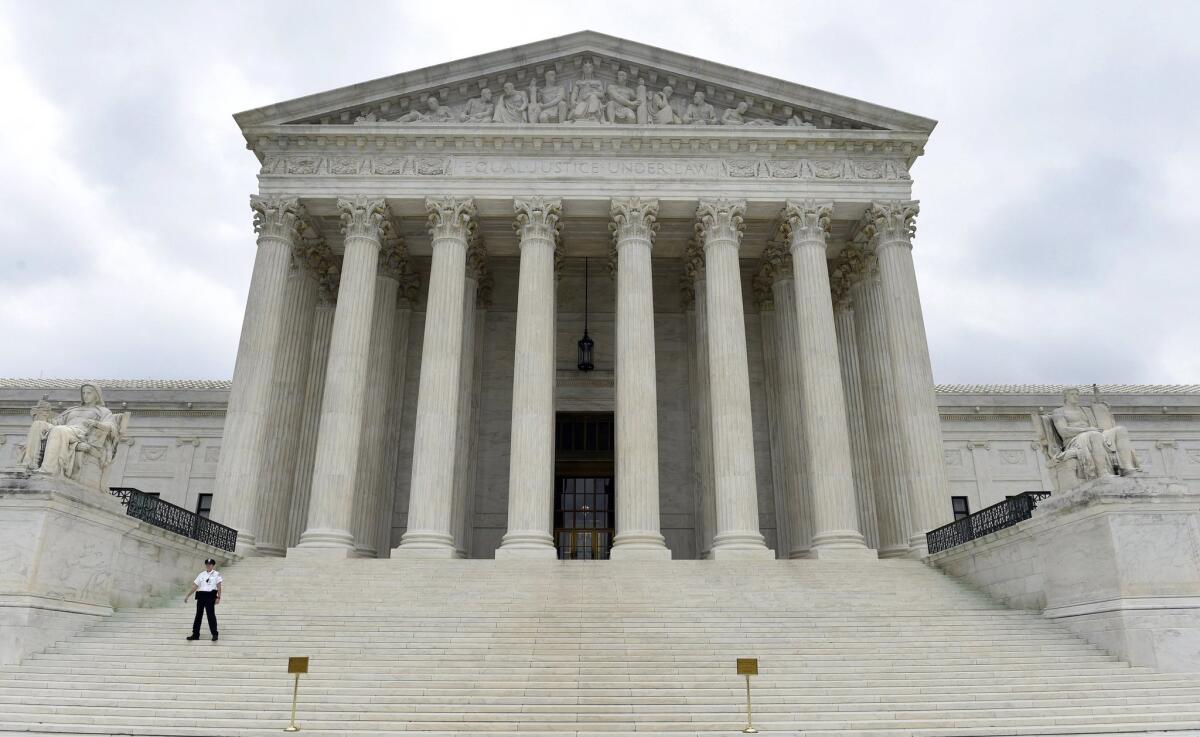Editorial: The law and the ‘violent felony’ muddle

- Share via
Twice recently the Supreme Court has chastised the U.S. Department of Justice for stretching criminal laws beyond their rational application in order to secure a conviction. Beyond their consequences for individual defendants, these decisions sent a welcome message to prosecutors that they must not uproot a statute from its clear context in order to get their man (or woman).
Sometimes, however, prosecutors are aided in their overreach by laws that are so vaguely written that it’s not clear exactly what conduct is being targeted. On Monday, the Supreme Court heard a challenge to one such law, which allowed the government to define illegal possession of a gun as a “violent felony” justifying an extended prison term.
The exceedingly unattractive defendant in this case, Samuel Johnson, is a white supremacist from Minnesota who pleaded guilty in 2012 to being a felon in possession of a firearm. Under the Armed Career Criminal Act, he was sentenced to a 15-year prison term because he had three prior “violent felonies” on his record. Johnson conceded that two of his previous convictions, for robbery and attempted robbery, were violent felonies. But he disputed the government’s decision to classify a third conviction, for possessing a short-barreled shotgun, as a “violent felony.”
The notion that the mere possession of an illegal firearm is a violent act defies the dictionary and common understanding, and Johnson initially argued — plausibly — that it was not. But Monday’s arguments focused on a broader issue: whether the violent felony provision in the Armed Career Criminal Act was unconstitutionally vague. The answer is clearly yes.
The law provides a list of crimes that qualify as violent felonies: burglary, arson, extortion or the use of explosives. So far so good. But it also contains a general definition of “conduct that presents a serious potential risk of physical injury to another.” The question of which crimes are covered by this amorphous provision — drunk driving? fleeing from police? — has long bedeviled the Supreme Court and lower courts, and will continue to do so unless the provision is declared unconstitutional. Meanwhile, as Chief Justice John G. Roberts Jr. noted, the vagueness of the law makes it hard for defense lawyers to advise their clients about whether they should enter a plea bargain.
As Johnson’s lawyer told the court, the law’s vagueness “is proven by this court’s inability after repeated efforts to discern a meaningful and replicable interpretive framework that will guide lower courts.” It’s time for the court to send Congress back to the drawing board.
Follow the Opinion section on Twitter @latimesopinion and Facebook
More to Read
Sign up for Essential California
The most important California stories and recommendations in your inbox every morning.
You may occasionally receive promotional content from the Los Angeles Times.












